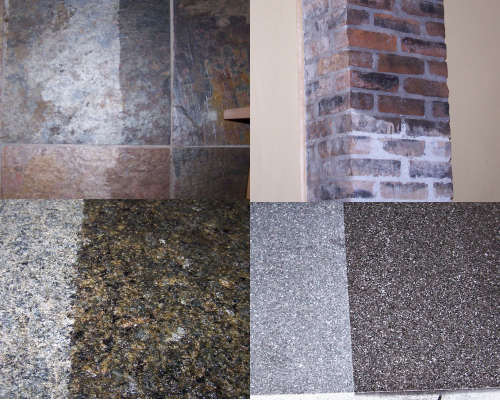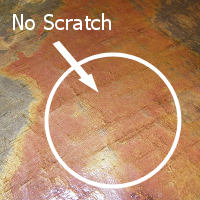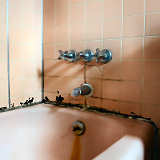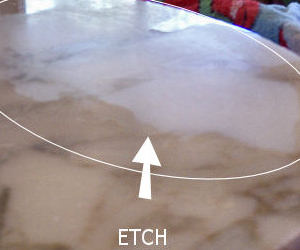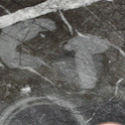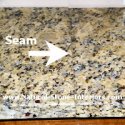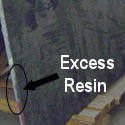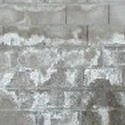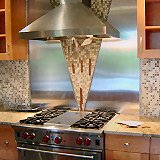Resining Natural Stone
What Is It?
Resining natural stone is a procedure meant to fix natural flaws in the stone. Fissures and pits are filled with epoxy resins for granite and
polyesters for marble. Almost all travertine stones, a large number of marbles, and some granite varieties are resined.
- The natural stone slabs are first honed to allow the surface of the
stone to evenly absorb the resin.
- The stone is then put into a special convection oven for a few hours to completely dry it out. This is so the resin can absorb deeply into any
small cracks on the surface of the stone.
- Once it has completely dried, the resin is spread over the entire surface of the stone and then the resined slabs are cured.
- After the resin has cured, the slabs are polished. All excess resin is removed from the slab, leaving behind only the resin that has filled
any cracks or pits.
| Why Is Natural Stone Resined? |
- Resining Natural Stone can help strengthen more delicate stones. Some stones are too fragile to go through the polishing process.
- Resined slabs are less likely to be damaged during shipping.
- Some stones are very pitted. Resining them fills in the pits and makes the stone smoother to the touch.
- Fissures that pass through a slab of granite decrease the strength of the stone. Resining the granite fills in these
fissures and helps strengthen the stone.
- Natural micro-fissures in some granites can reduce the beauty of the stone by compromising the final polished finish.
- There is less waste with resined natural stones, especially a resined marble. This reduces the cost of natural stone to you.
- Resining natural stone may make a stone less porous. Some experts say that resined stones do not need to be sealed since
the resin acts as a sealer.
- Other experts recommend that more porous natural stones should be
sealed regardless of whether it had been resined or not
because most of the resin is removed from the surface of the stone during the polishing process.
If you plan to seal a resined stone, try the
water test to make sure the sealer will absorb into your stone.
| Quick Questions On Resining Natural Stone |
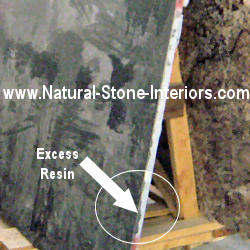 Are epoxy resins safe for kitchen countertop surfaces?
Are epoxy resins safe for kitchen countertop surfaces?
Yes, they must comply with FDA rules for food contact.
Are there problems with resined stones?
The most noticeable thing with resined stones is after fabrication. The edge of your stone may be lighter than the top.
This is because the resin is applied to the surface of the stone, and not the edges.
The top is then polished with a machine. The edges are cut and shaped to your specifications and many times polished by hand instead of with
a machine.
You or your fabricator could apply a quality color enhancer
to match the edge of your stone to the surface.
Will the resins be damaged if they come into contact with heat?
The resins have a tendency to soften up in the presence of high temperatures. The small fractures are not usually affected by heat. If there is a
larger resined area, it will go back to it's original status as soon as the temperature decreases.
How do I know if I have a resined stone?
Ask your fabricator if your natural stone is resined. Or if you go to the stone yard to choose your slab, look at the edge of the slabs
carefully.
You will notice an overlap of resin on the edges of the stone. It will look shiny in some spots... almost like a varnish was carelessly applied
to the edge of the stone. It's usually noticeable when viewing whole slabs.
You'll find More hints & tips on:
Return from Resining Natural Stone to
Stone & Granite Care Tips
Return from Resining Natural Stone to Natural Stone Interiors Home

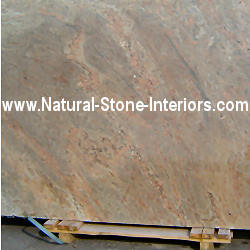
 Are epoxy resins safe for kitchen countertop surfaces?
Are epoxy resins safe for kitchen countertop surfaces?